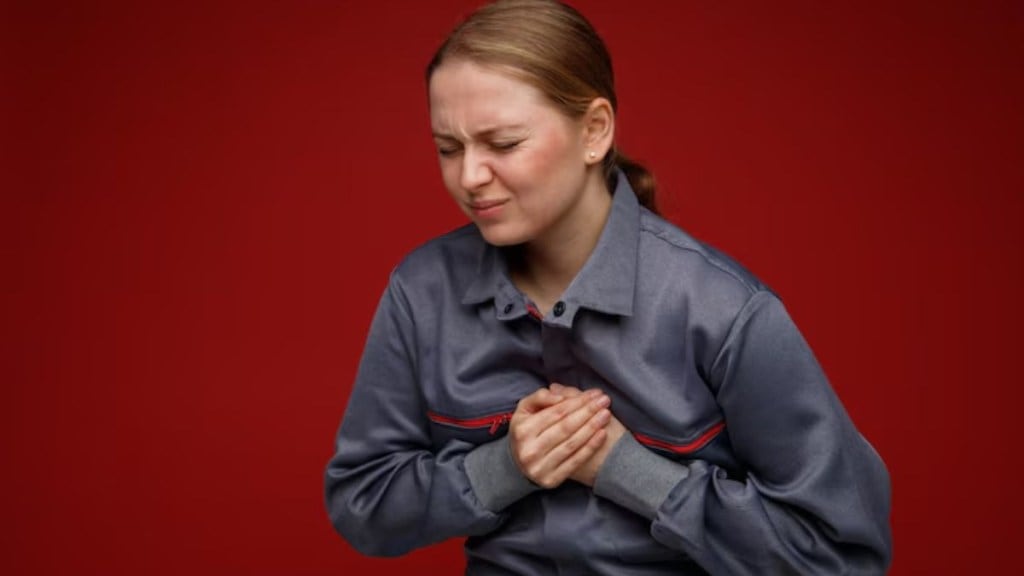In today’s fast-paced world, our busy lifestyle is silently taking a toll on our hearts. Long work hours, constant deadlines, poor sleep, unhealthy eating habits, and daily stress have become part of our routine—and so have rising cases of heart disease, even among younger adults. Doctors say they’re seeing more heart attacks and cardiac issues in people in their 30s and 40s, many of whom have no obvious risk factors like obesity or diabetes. The real culprit? Chronic stress and a neglected lifestyle. Having said that, a 45-year-old woman in Bengaluru ignored her racing heartbeat at night, breathlessness after climbing stairs, and mild chest pain. She thought it was just stress. So did her doctor, who linked it to anxiety from work.
But one night, she rushed to the emergency room, sweating heavily and feeling anxious. She had no chest pain—but her ECG showed she had suffered a heart attack.
Dr. Ranjan Shetty, lead cardiologist and medical director at Sparsh Hospitals in Bengaluru, shared with The Indian Express that this case is far too common. “Women often misinterpret—or are misdiagnosed—with anxiety when they’re actually experiencing a cardiac event,” he explains. “That’s because heart attack symptoms in women can be subtle, and often overlap with stress-related issues,” he further adds.
Why heart attack symptoms differ in women
Dr. Shetty explains that unlike men, who usually experience sharp and obvious chest pain during a heart attack, women’s symptoms tend to be vague or atypical. These can include:
- Shortness of breath
- Unusual fatigue
- Nausea or stomach discomfort
- Dizziness or lightheadedness
- Mild chest discomfort, often mistaken for indigestion
“Women also have a higher pain threshold, so they may downplay their symptoms or not even realize something is wrong,” says Dr. Shetty.
Adding to the confusion is that many women suffer from non-obstructive coronary artery disease, which means the blockages occur in smaller blood vessels, not the major arteries. “These types of blockages may not produce classic crushing chest pain. Instead, the discomfort might feel like indigestion or muscle strain,” he explains.
The role of hormones and silent attacks
Hormonal fluctuations, especially around menopause, also play a big role in how women experience heart issues. “As estrogen levels dip, it can affect the heart’s electrical system, leading to irregular heartbeats or palpitations,” says Dr. Shetty. “These sensations are often dismissed as stress or hormonal changes, especially if a woman is nearing or in menopause.”
Women are also more likely to suffer from silent heart attacks, where the symptoms are so mild that they go unnoticed—or are mistaken for something else. These can involve temporary discomfort when a partially blocked artery allows some blood to flow, relieving pain before it becomes severe. “This makes diagnosis very tricky,” adds Dr. Shetty.
Anxiety vs. heart attack: How to tell the difference
One common question patients have is: How do I know if it’s anxiety or something more serious?
Here’s what Dr. Shetty suggests:
- Heart attacks often follow physical exertion, like climbing stairs. The symptoms tend to get worse over time.
- Anxiety attacks, on the other hand, can happen even at rest and often subside on their own.
“If symptoms like chest discomfort, pressure in the upper abdomen, or shortness of breath persist for more than 20 minutes and feel unusual, don’t wait it out. Seek help immediately,” he warns.
How to keep a check?
The quickest way to know what’s happening is to get to an emergency room and ask for an ECG (electrocardiogram). If anything looks abnormal, doctors may perform a troponin T test, which can confirm heart muscle damage.
“The earlier we catch it, the better the outcome,” says Dr. Shetty. “Women should trust their instincts—if something feels off, don’t write it off as stress or gas. Get checked.”
Heart disease remains the leading cause of death among women, yet many don’t realise they’re at risk until it’s too late. Listening to your body, knowing the subtle signs, and not hesitating to seek medical care can make all the difference.
“Don’t ignore what your body is trying to tell you,” says Dr. Shetty. “It could save your life.”








